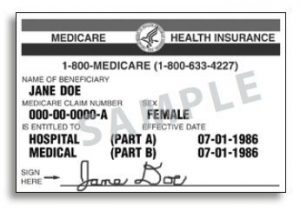Does Medicare Or Any Other Insurance Cover Stair Lifts?
As time catches up with your body, you may notice that things that you were able to do before aren’t as easy to do now. Even walking up or down a flight of stairs can be a challenge, especially for older legs.

This isn’t just a minor inconvenience. For someone who lives in a home with more than one story, it can be a constant source of anxiety. After all, no one wants to get injured falling down the stairs.
That’s why more and more seniors are looking into installing stair lifts. Instead of constantly worrying about getting hurt, it can safely take them up and down their homes in comfort.
If the cost of the stair lift can make it seem like a luxury you can’t afford, there are many ways to make them more accessible. From various government health care programs to private insurance companies, it’s possible to, at the very least, reduce the cost of getting a stair lift installed in your home.
Will Medicare pay for a stair lift?
Quick answer: No
When it comes to medical expenses for senior citizens, the first thing that comes to mind is Medicare. It’s the insurance program provided by the government for Americans age 65 and older but it also covers people below that age who have certain disabilities. As long as you paid your taxes while you were still in the workforce, you are automatically eligible for Medicare.
 Medicare is divided into four parts, named Part A, B, C, and D. Medical insurance falls under Part B which includes “Durable Medical Equipment” (DME). While patient lifts are listed on Medicare’s website as part of DME coverage, stair lifts, unfortunately, do not fall into this category.
Medicare is divided into four parts, named Part A, B, C, and D. Medical insurance falls under Part B which includes “Durable Medical Equipment” (DME). While patient lifts are listed on Medicare’s website as part of DME coverage, stair lifts, unfortunately, do not fall into this category.
Stair lifts are considered a “home modification” which isn’t covered under Medicare guidelines. They see it as more of a tool for convenience instead of a medically necessary piece of equipment. However, Medicare is not the only option.
What about Medicaid?
Quick answer: It depends
Another government sponsored medical insurance program is Medicaid. Unlike Medicare, eligibility for Medicaid is based largely on your financial situation. The program provides health insurance to Americans of all ages who have low income.
Medicaid policies are different from state to state. That’s because funding for this program is provided by both the federal and state government and is managed by the state. According to PayingForSeniorCare.com, most states offer Medicaid programs that cover home modifications that will allow elderly or disabled individuals to remaining living at home. Luckily, stair lifts can do just that.
Instead of providing assistance to the elderly in a nursing facility, Medicaid’s Home and Community Based Services (HCBS) waivers aim to encourage recipients to continue living in their own homes. Lawmakers recognized that it was less expensive to do so while those eligible would also prefer to stay at their own residence. If funding the cost of a stair-lift would be the answer to that, then it’s a win-win for everyone.
Again, Medicaid programs won’t be the same for every state. In some states, there can be limited enrollments and there can even be a waiting list to go through before being able to avail of the service. It’s best to check with your state Medicaid office to find out if you’re eligible.
Does insurance cover stair lifts?
Quick answer: It depends
For those that don’t want to rely solely on government-funded health insurance, there’s always the option of private insurance. While private insurance is most commonly availed by employees through their benefits package, long-term care insurance is often used by older citizens.
Since there are so many private health insurance companies and with each having their own sets of policies, whether or not stair lifts are covered will depend on the specific insurance plan you’re enrolled in. For example, this document from Blue Cross Blue Shield of North Carolina states that stair lifts are excluded from their health benefits plans but many other companies are known to at least cover a portion of the cost. Contact your insurance provider to find out if your policy covers stair lifts.
In some cases, your first claim for insurance coverage may be denied. If this happens, it may take a bit of negotiation. When looking to have an insurance company cover the purchase of a stair lift, it’s a good idea to be prepared. Something that will help a lot in convincing the insurance provider is a justification statement from a medical professional that proves that you actually need the stair lift.
If they’re still reluctant to provide coverage, you should talk to an insurance agent directly. Discuss with them how having a stair lift can actually save the company money. For one, the chances that the policyholder will file an insurance claim due to an injury caused by a fall will be reduced. You can also point out that a stair lift can help you stay in your own residence instead of being transferred to a nursing home. This is often enough to convince the company to provide coverage.
Can the Veterans Administration help cover the cost of a stair lift?
Quick answer: Yes
If you’re a veteran that needs help to fund a stair lift, the Veterans Administration should be the first place you look. The United States Department of Veterans Affairs (VA) was established to serve those who’ve put their life on the line to serve their country.

The VHA Handbook, Section 1173.08 (which can be found on their website) covers Medical Equipment and Supplies. Among the equipment listed are “Stair Glides” which is what they call stair lifts. According to the handbook, the VA will fund the purchase of a stair lift as long as it is medically necessary for the veteran’s care and treatment.
Whether the disability was a result of military service or not, veterans can apply for stair lift funding. Even a veteran’s spouse can be covered by the benefits.
The VA has several programs available that can cover the cost. The Veterans Directed Home and Community Based Services (VD-HCBS) can provide assistance to help veterans who want to continue living in their own homes. Another benefit provided by the VA is Aid & Attendance and Housebound benefits which are benefits paid in addition to monthly pension. There are also housing grants for disabled veterans that can help cover the cost of home modifications such as stair lifts.
Whatever benefits you may be eligible for, get in touch with your local VA to talk about which options are right for you.
As a senior citizen, being able to live independently can be a growing concern. If getting a stair lift will help, then it’s definitely worth considering. And as you can see, there are quite a few ways to make it easier to have one in your home. Give us a call at 1-877-699-7472 to schedule a free consultation so we can discuss what options are available just for you.
Schedule a Free Quote
Schedule an Free Installation Quote
Call us today to learn how you can have a stair lift professionally installed in your home.
